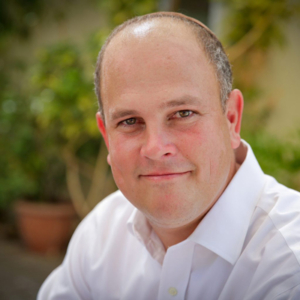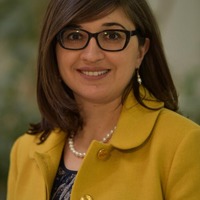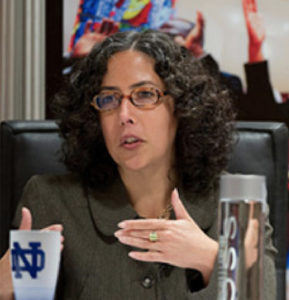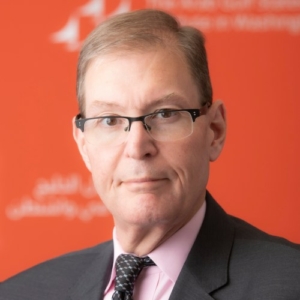On December 5th, 2021, the UCLA Luskin Center for History and Policy, in partnership with the USC Casden Institute for the Study of the Jewish Role in American Life and the UCLA Y&S Nazarian Center for Israel Studies, hosted part two of its multi-part series “Deadlock in Israel-Palestine: How to Imagine a Better Future?”
The aim of this series is to bring together leading scholars, thinkers, and policy-makers—each with different affiliations and visions for the future—to put forward contemporary resolutions against an otherwise stagnate Israeli-Palestinian conflict. This dialogue is meant to reimagine what is possible in the current state of impasse in Israel-Palestine and to have the discourse of ideas settle as a newfound hope for a political path forward.
Scholars Julie Cooper, Micah Goodman, Hussein Ibish, and Areej Sabbagh-Khoury discussed in candid terms what next steps should be taken to address the current conflict.
These speakers examined whether a commitment to a specific ideological solution was necessary to begin working towards peace, or if it would be better to simply work towards shrinking the conflict and changing the lived conditions of people on the ground. Would a commitment to a specific solution outlast intentions to reduce the conflict, or would attempts to shrink the conflict create the circumstances necessary for a more visionary and imaginative solution? In any case, which path forward might garner the most immediate political support?
Watch a recording of the event below.
About the Panelists
Julie E. Cooper is a political theorist and senior lecturer in the Political Science Department at Tel Aviv University. She previously served as an assistant professor of Political Science at the University of Chicago and Syracuse University. She is the author of Secular Powers: Humility in Modern Political Thought (2013). Dr. Cooper holds a Ph.D. in Rhetoric from the University of California, Berkeley.
 Micah Goodman is an Israeli intellectual and author of Catch-67: The Left, the Right, and the Legacy of the Six-Day War, a 2017 book about the internal debate with Israel over the Israel-Palestinian conflict. Dr. Goodman is a research fellow of the Kogod Research Center at Shalom Hartman Institute in Jerusalem.
Micah Goodman is an Israeli intellectual and author of Catch-67: The Left, the Right, and the Legacy of the Six-Day War, a 2017 book about the internal debate with Israel over the Israel-Palestinian conflict. Dr. Goodman is a research fellow of the Kogod Research Center at Shalom Hartman Institute in Jerusalem.
Hussein Ibish is a senior resident scholar at the Arab Gulf States Institute in Washington, D.C. A think tank dedicated to covering the “social economic, and political diversity of the Arab countries in the Persian Gulf region.” He was a fellow at the former American Task Force on Palestine. Hussein Yusuf Kamal Ibish holds a Ph.D. in Comparative Literature from the University of Massachusetts Amherst and is active in advocacy for Arab causes in the United States.
 Areej Sabbagh-Khoury is a Palestinian sociologist. She is an assistant professor in the Department of Sociology and Anthropology at the Hebrew University in Jerusalem. Sabbagh-Khoury has published on settler colonialism, citizenship, indigeneity, collective memory, and political developments in Israeli and Palestinian societies. In addition to her teaching and publishing, Sabbagh-Khoury has served as a Research Associate, Academic Coordinator, and Board Member at Mada al-Carmel: The Arab Center for Applied Social Studies in Haifa.
Areej Sabbagh-Khoury is a Palestinian sociologist. She is an assistant professor in the Department of Sociology and Anthropology at the Hebrew University in Jerusalem. Sabbagh-Khoury has published on settler colonialism, citizenship, indigeneity, collective memory, and political developments in Israeli and Palestinian societies. In addition to her teaching and publishing, Sabbagh-Khoury has served as a Research Associate, Academic Coordinator, and Board Member at Mada al-Carmel: The Arab Center for Applied Social Studies in Haifa.





